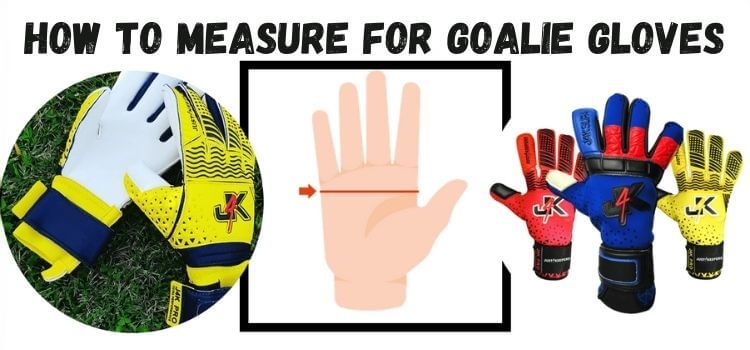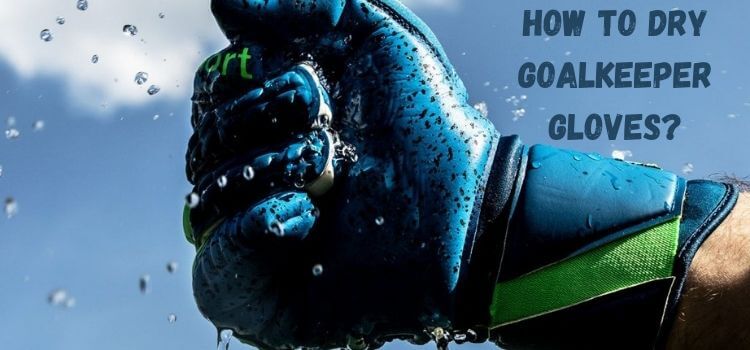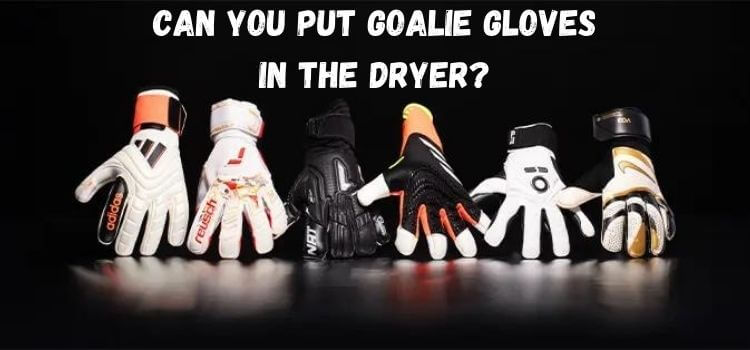As an Amazon Associate, I earn from qualifying purchases
In soccer, goalkeeping is a vital position, and optimal performance depends on possessing the appropriate equipment. One of the most essential pieces of equipment for any goalie is their gloves. But how do you ensure you’re getting the right fit? With these detailed instructions, you can measure goalie gloves to ensure maximum comfort and performance.

Why Proper Measurement is Important
Getting the right fit for your goalie gloves is crucial. Ill-fitting gloves can impede your performance and even lead to injuries. Let’s explore why proper measurement is so important.
Consequences of Poorly Fitting Gloves
When your gloves are too tight, they can restrict blood flow and reduce your ability to move your hands quickly.
On the other hand, gloves that are too loose may not provide the necessary grip and control, making it harder to catch and hold onto the ball. Both scenarios can negatively impact your game, highlighting the importance of a perfect fit.
Understanding Goalie Gloves
Before starting the measurement process, it’s essential to understand the different types of goalie gloves that are available. Knowing which type you need can influence how you measure your hands.
Types of Goalie Gloves
Practice Gloves
These are designed for training sessions. They often have more durable materials to withstand frequent use but may offer a different level of grip than match gloves.
Match Gloves
Match gloves are designed for competitive play. To ensure optimum performance during sports, they are usually fashioned with high-quality materials and have more excellent grip.
Tools Needed for Measurement
Now that you know the importance of proper measurement and the types of gloves available, let’s gather the tools you’ll need for accurate measurements.
Essential Tools
Measuring Tape
To measure the length and width of your hand accurately, you’ll need a flexible measuring tape.
Pen and Paper
You’ll need these to jot down your measurements and compare them to sizing charts later.
Step-by-Step Guide to Measuring
With your tools ready, it’s time to start measuring. Follow these steps to ensure you get the most accurate measurements.
Step 1: Prepare Your Tools
Ensure you have your measuring tape, pen, and paper ready. Find a flat surface to place your hand on for stability during the measurement process.
Step 2: Measure Your Hand Length
Finding the Correct Starting Point
To measure your hand length, start from the tip of your middle finger and extend to the base of your palm, where your wrist begins. This will give you the total length of your hand.
Step 3: Measure Your Hand Width
Locating the Widest Point
For the hand width, measure across the widest part of your palm, which is typically just below your knuckles. Make sure the measuring tape is just the right amount of snug.
Step 4: Compare Measurements to Sizing Charts
Using Manufacturer’s Charts
Different brands have different sizing charts. To find your correct glove size, compare your measurements to the manufacturer’s chart. These charts are often located on the glove’s package or the official brand website.
Step 5: Try On Gloves
Checking for Fit and Comfort
Once you have your gloves, try them on to ensure they fit well. They should feel snug but not restrictive, allowing for a full range of motion and flexibility.
Tips for Ensuring the Best Fit
Here are some additional tips to help you get the best fit for your goalie gloves.
Consider the Type of Glove
Remember to consider the type of glove you’ll be using most often. Match gloves might fit differently than practice gloves, so it’s essential to measure for the specific type you need.
Re-measure Regularly
Your hand size can change over time, especially in growing athletes. Re-measure your hands periodically to ensure your gloves always fit correctly.
Consult with Experts
If you need clarification on your measurements or the best type of gloves for your needs, consult with experts at sports equipment stores. They can provide valuable insights and recommendations.
Common Mistakes to Avoid
Avoid these common mistakes to ensure you get the best fit for your goalie gloves.
Ignoring Manufacturer’s Instructions
Each manufacturer may have specific instructions for measuring and sizing. Ignoring these can lead to proper-fitting gloves.
Not Re-measuring Over Time
As mentioned earlier, your hand size can change. Failing to re-measure can result in wearing gloves that no longer fit properly, affecting your performance and comfort.
Conclusion
The way you measure for goalie gloves may seem like little, but it can have a significant effect on how well you play. By following the steps outlined in this guide, you’ll ensure that your gloves fit perfectly, providing the comfort and control you need to excel as a goalkeeper.
FAQs (Frequently Asked Questions)
It’s a good idea to measure your hands at the start of each season or whenever you notice a change in fit. Growing athletes should measure more frequently.
No, regular gloves lack the padding and grip necessary for goalkeeping, which can affect your performance and increase the risk of injury.
If your measurements are between sizes, you are usually advised to go with the larger size to provide a more flexible and comfortable fit.
Goalie gloves should be snug but not too tight. They should allow for entire movement and flexibility without causing discomfort or restricting blood flow.
Yes, there are gloves designed for various weather conditions. Wet-weather gloves have a better grip in the rain, while cold-weather gloves offer additional insulation to keep your hands warm.
Read Our More Articles
- How to Break in a Goalie Glove: A Quick and Easy Guide
- How to Make Goalie Gloves Sticky: A Beginner’s Guide
- Are Goalkeeper Gloves Sticky? Get the Answers Here!
As an Amazon Associate, I earn from qualifying purchases


